The Road From Eleusis: Psychedelics, Trauma Healing, and the Neuroscience of Transformative Learning
“If the doors of perception were cleansed, everything would appear…as it is - infinite.”
― William Blake
September 13th - October 25th
A Seven-Week Online Course with Tim Willison

Both individually and collectively, human development unfolds multi-dimensionally through progressive stages that emerge within the enabling conditions of those liminal spaces that can support transformative learning. Over the millennia, the role of transformative learning in cultural evolution has included the use of psychedelics. Psychedelic experience can contribute to transforming habits, patterns, and lives. Although there have been approaches to transformative learning that demonstrably parallel the creative and transformative effects of psychedelics without their use, this course focuses on the role psychedelic compounds can have in healing and transforming individual and collective trauma.
While casual, frequent, and the non-ritualized use of psychedelic compounds can be harmful, even so and similar to mindfulness practice, the use of psychedelic compounds is on its way to becoming mainstream. The scientific study and utilization of psychedelics is at an inflection point as indicated by inclusion on the list of the top 10 annual scientific breakthroughs in the journal, Science. Both hyping and debunking distort what we do and don’t know about psychedelics and neuroplasticity, in effect problematizing the application of research to therapeutic and transformative efforts. This course reviews contemporary research on psychedelic practice in the context of cultural history, mythology, and political development.
Course Modules
- Ecologies of Mind: The Primacy and Presence of Experience
- Mind as the Subjective Experience of Consciousness
- The Role of Transformative Learning in Transforming Mindsets
- Psychedelics as a Catalyst for Transformative Learning
- Transformations of Consciousness: Mindfulness and Growth Mindsets
- The Ecstatic Imperative: Rediscovering Participatory Consciousness
- Psychedelic Experience: Ecstatic, Mystical and Religious
- De-integration and Disintegration: Multiplicity and Transformations of Identity
- Perspectival Shifts: Breaking Through the Trance of Normality
- Letting the Brain off the Leash: Quieting the Default Mode Network
- Activating Whole-Brain Experience through Ritualization
- Consciousness Develops Minds through Integrating Experience
- Critical Periods: The Magic of Neuroplasticity
- How Many Brains? The Modularity of Brain Structure
- Well-Being as State and Well-Being as Structure
- Creativity and the Ecology of Consciousness
- Seven Dimensions of Trauma
- Healing is a Learning Process
- Emotion, Cognition, and Addiction
- Frozen Minds: Numbed and Embedded in Abstraction
- Transcending Adaptive Identity: Regulating the Default Mode Network (DMN)
- Reopening the Critical Period: Adaptive DMN versus Transformative DMN
- Peace of Mind: Liberation from Perspectival Fixation
- Reimagining Love and Conscience as Consciousness Capabilities
- Language and Poesis: Participating in an Animated World
- Cultural Trauma: Cultural Crisis as a Crisis of Meaning
- Developmental Trauma: The “Mental Health Crisis” is a Cultural Crisis
- Closing the Shamanic Circle: Indigenous Roots of Psychedelic Practice
- Dynamic Equilibrium: The Emergence of Complexity
- Wisdom Journey: The Arc of Cultural Formations
- Sharing Possible Worlds: The Future Emerges in Liminal Spaces
- The Power of Possibility: Psychedelics, Creativity, and Improvisation
- Psychedelic Experience as a Window to the Inner Commons
- From Domination to Partnership: Regenerating the Cultural Commons
- The Transgressive Imagination: The Advent of the Metamodern Psychedelic Practitioner
- The Role of Transformative Learning in Enabling Individual and Collective Development
- Transformative Communities of Practice and the Emergence of Next Practices
- Collective Awakening: Gathering the Force of Goodness
*Course modules are illustrative. Faculty build dynamic course content and class structure aligned with and beyond the listed modules.
Convening Faculty
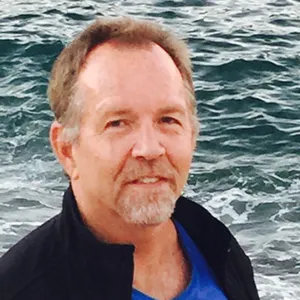
Tim Willison
Tim Willison, Ph.D., serves as a faculty member at Meridian University and is a clinical psychologist in private practice, emphasizing tools and practices to enable transformative self-understanding and healing in his teaching and counseling. His foundational experiences in residential care, inpatient psychiatric units, and adolescent treatment programs equipped him to handle diverse and complex situations, and inspired his research interest in the therapeutic use of psychedelics.
In his psychotherapy private practice, Tim help clients through his specializations in addiction, ecstatic experiences, and affect theory.
His personal path, marked by early struggles and transformative experiences, informs his empathetic approach to therapeutic practice. The lessons learned during his time at the Esalen Institute significantly impacted his professional perspective. As an educator, he emphasizes transformative learning theory and the dual nature of desire as a guiding principle.

Tim Willison
Tim Willison, Ph.D., serves as a faculty member at Meridian University and is a clinical psychologist in private practice, emphasizing tools and practices to enable transformative self-understanding and healing in his teaching and counseling. His foundational experiences in residential care, inpatient psychiatric units, and adolescent treatment programs equipped him to handle diverse and complex situations, and inspired his research interest in the therapeutic use of psychedelics.
In his psychotherapy private practice, Tim help clients through his specializations in addiction, ecstatic experiences, and affect theory.
His personal path, marked by early struggles and transformative experiences, informs his empathetic approach to therapeutic practice. The lessons learned during his time at the Esalen Institute significantly impacted his professional perspective. As an educator, he emphasizes transformative learning theory and the dual nature of desire as a guiding principle.
Contributing Faculty
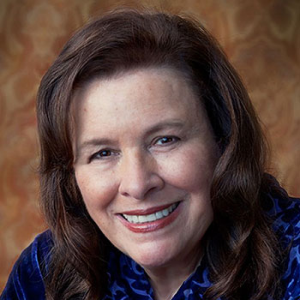
Jean Houston
The Chancellor of Meridian University, Dr. Houston is a visionary researcher who has authored over 40 books and worked intensively in even more cultures, lectured in over 100 countries, and worked with major organizations such as UNICEF and NASA. She has been an advisor to numerous world leaders, and the past international consultant for the United Nations. Dr. Houston's book, A Passion for the Possible, was an expansive compliment to her inspiring PBS special of the same name. Dr. Houston has served on the faculties of Columbia University, Hunter College, Marymount College, The New School for Social Research, and the University of California. She holds doctoral degrees in both psychology and religion.
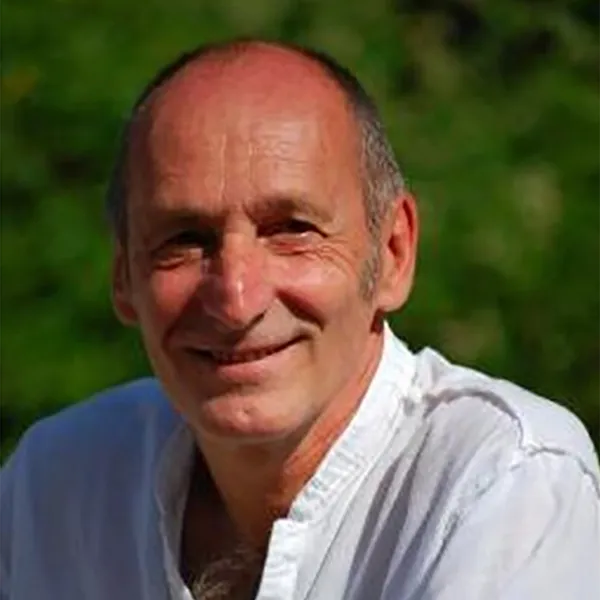
Pier Luigi Lattuada
Pier Luigi Lattuada, MD, PhD, PsyD, a faculty member at Meridian University, is the President of the Integral Transpersonal Institute and the Director of the Transpersonal Psychotherapy School in Milan, Italy. He is a Medical Doctor with a PhD in Behavioral Studies and a PsyD in Clinical Psychology. Additionally, he is a Psychotherapist and the founder of Biotransenergetics. The Transpersonal Psychotherapy School in Milan has been recognized by the Ministry of Education University and Research since 2002.
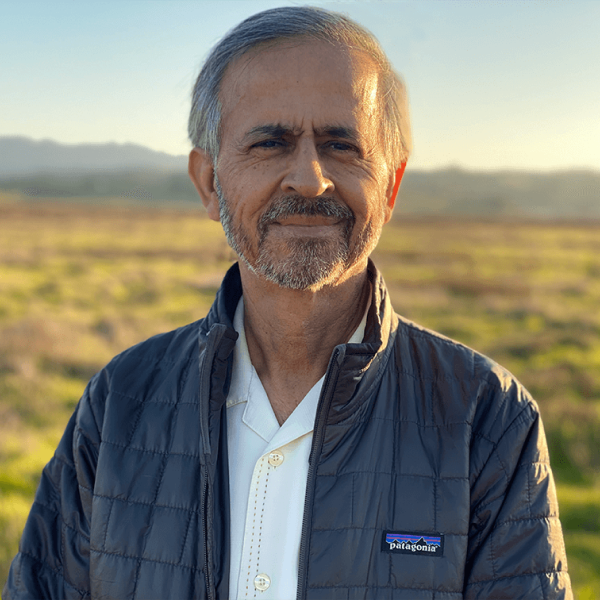
Aftab Omer
Aftab Omer, Ph.D. is the president of Meridian University which offers degree and professional programs globally, emphasizing the power of transformative learning.
He is a sociologist, psychologist, developmentalist, and futurist. Raised in Pakistan, India, Hawaii, and Turkey, he was educated at the universities of M.I.T, Harvard and Brandeis. His publications have addressed the topics of transformative learning, dialogic capability, developmental power, cultural leadership, civil society, generative entrepreneurship, and the power of imagination.
Aftab’s advising work focuses on team development and on leveraging the creative potentials of conflict, diversity, and complexity. Formerly the president of the Council for Humanistic and Transpersonal Psychologies, he is a Fellow of the International Futures Forum and the World Academy of Arts and Sciences.
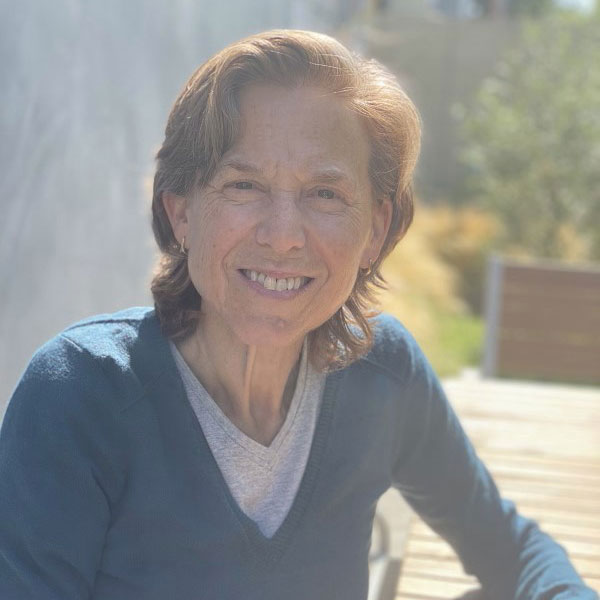
Melissa Schwartz
Melissa Schwartz, Ph.D. is the Chief Academic Officer at Meridian University where she guides integrally-oriented programs in Education, Business, and Psychology. The Director of Meridian’s Center for Transformative Learning, Melissa is dually licensed as both a psychologist and as a Marriage and Family Therapist (MFT). She serves as a reviewer for the American Psychological Association’s Journal, Psychology of Women Quarterly, and the California Psychological Association’s Office of Professional Development. As well, she serves as a Subject Matter Expert for California’s Board of Behavioral Sciences in the continual development of the state’s MFT licensure examination. Melissa’s research interests are in the areas of adult development, the psychology of women, integral transformative assessment, and the role of culture in transformative learning.


Course Structure
- Seven-week online course from September 13, 2023 through October 25, 2023.
- Six live 75-minute Zoom sessions with faculty held Wednesdays at 10:00 am PT (Pacific Time) and recorded for participants who cannot join every session live. Note: There is no live class during Week One.
- Resources, networking, and emergent community outcomes.
- Content and collaboration via Meridian's social learning platform.


Course Schedule
Course Platform Opens
First Live Course Session
Second Live Course Session
Third Live Course Session
Fourth Live Course Session
Fifth Live Course Session
Sixth Live Course Session
Course Fees
$250
- Live video classes
- Access to recordings on course platform
- Course platform community and resources
- Participant launch of ongoing Community of Practice after the course
Accreditation
Meridian University is accredited by the Western Association of Schools and Colleges (WASC) - a higher education accreditor recognized by the United States Department of Education. WASC is also the accreditor for Stanford University, UCLA, and the University of California at Berkeley.
Frequently Asked Questions
Meridian’s online courses are conducted via the University's own learning platform, Pivot, as well as the Zoom video conferencing system.
Our online courses promote community learning, through strong interactive engagement with fellow students and faculty as well as live video sessions with faculty.
You will need an email account, a high-speed internet connection, and access to a computer, iOS or Android device.
If you are planning to attend the course video calls live, you will need a webcam and microphone for your device. (Course video calls are conducted with participants video-enabled.)
Live 75-min video sessions with faculty and fellow students will be conducted throughout the course. Each week's live video call will be recorded and posted on the course platform.
Video presentations, readings, discussions and learning activities will be accessible asynchronously and may be completed on participants' own schedule. Course resources and recordings will remain available up to 30 days after the close of the course.
Full refunds are available until two (2) days before the course begins, by request via email.
You do not need to apply to a Meridian graduate degree program to take this online course. This course is one of Meridian’s open-enrollment courses
The course support team will be available to assist from start to finish. Please send your questions/requests/issues to openenrollment@meridianuniversity.edu
Convening faculty generally lead each live session. Contributing faculty typically contribute in one of the live course sessions. Course resources address the work of both convening and contributing faculty.
Meridian has institutional and federal financial aid options for our graduate degree programs. This open enrollment course does not have financial aid or payment plans available.
{/ Register here to join a community of engaged practitioners for this unique online course experience. Pre-registration below is required to attend and space is limited. Registrations will be processed on a first-come-first-served basis and to ensure a quality experience for participants, last minute registration is not guaranteed. Meridian coursework students should register for this course through the Services App. Meridian continuation students have the option to register as public participants without academic credit. Continuation students and Meridian alumni are eligible for a 50% discount by contacting ctl@meridianuniversity.edu. Register
Submitting